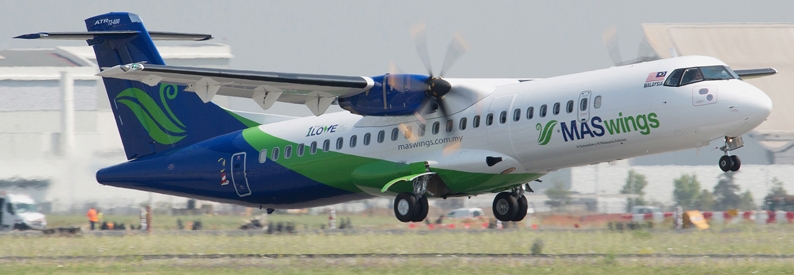Malaysia to boost MASwing’s rural services

The Malaysian Aviation Commission (MAVCOM) is to review the public services obligation agreement (PSO) to improve the current services provided by Malaysia Airlines subsidiary MASwings (MY, Kota Kinabalu) on rural routes in Sabah and Sarawak, the Malaysian states on the Indonesian island of Borneo, according to Malaysian Prime Minister Datuk Seri Ismail Sabri Yaakob.
Speaking at the formal opening ceremony of the new MYR450 million ringgit (USD106 million) Mukah Airport in Sarawak on December 4, Ismail Sabri said this would include reviewing the objective of rural air services (RAS), the financial implications involved, routes and frequency of RAS flights, fares, aircraft utilisation on routes, and the subsidy distribution mechanism for users of the services, reported the Straits Times. “These are among the efforts undertaken by the government to ensure the people, especially those residing in the rural areas, can have access to the best services,” he said.
He said MASwings had started providing rural air services in Sarawak and Sabah in 2008, through a RAS agreement signed on July 3, 2008. A new PSO for rural air services (RAS) was signed on January 4, 2019. Under its terms, MASwing provides rural air services on 40 routes in Sarawak and Sabah using ATR72-500s and DHC-6-400s, he said. The airline operates ten ATR72-500s and six DHC-6-400s, according to the ch-aviation fleets advanced module. MASwing currently serves the Malaysian cities of Kuching, Miri, and Sibu from Mukah.
Ismail Sabri said the new Mukah Airport would boost economic development in Sarawak. The airport already opened on June 17, 2021, to replace the old Mukah STOLport (Short Take-Off and Landing airport) opened in the 1960s and which could only handle 67 passengers at any one time. The new facility can handle up to 200 passengers at once and 264,000 passengers per year. A new 1,500 metre-long runway is suitable for turboprop and helicopter operations and can also be extended for large jets, such as B737s and A320s, in the future.
